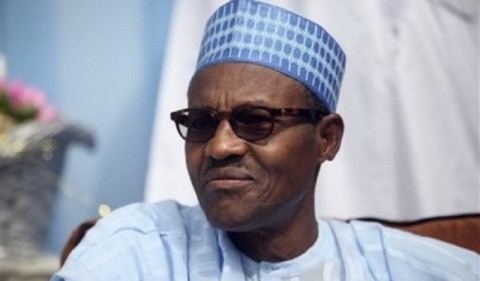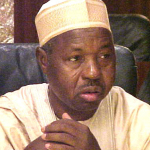OPINION: The $9.6B Judgment Debt Burden, By Adewale Kupoluyi
Articles/Opinion, Featured, Featured Contributors/Columnists, Latest Headlines Monday, September 16th, 2019
(AFRICAN EXAMINER) – The court judgment of $9.6 billion against Nigeria by a United Kingdom court for its inability to perform a subsisting contract between both parties continues to elicit reactions and controversy in the polity. In a judgment against the nation, the Irish company, Process and Industrial Developments Limited (P&ID) has been given the right to seize $9.6bn in Nigerian assets. The sum, which is about 20 percent of the country’s external reserves of $45billion, makes the judgment a product of the inability of our government to keep faith with the contractual terms with the existing Gas Supply and Processing Agreement (GSPA), causing the nation an opportunity to add 2,000 megawatts of power to its generation capacity.
In 2010, both parties had signed the agreement that P&ID would build a state-of-the-art gas processing plant that would convert wet gas to dry gas and supply same to the national grid at no extra cost to the country while the Federal Government would lay pipelines and supply gas to the plant in line with the deal. The company was obliged to make its invested funds through the exportation of byproducts of the wet gas for over 20 years. Reports indicated that the government failed to lay required pipes, making it impossible for P&ID to build the plant, as agreed. This brought about the dispute that made the company accuse Nigeria of breach of contract and depriving it of opportunity to earn a profit, as building the plant was contingent on the government laying the pipes.
For emphasis, in keeping to the terms of the contract, the company had opted for arbitration and a settlement was reached in 2015 in which Nigeria agreed to pay $850 million. Unfortunately, Nigeria did not adhere to the terms of the arbitration, making P&ID resort to arbitration and in 2017 whereby the arbitration tribunal ruled in favour of the company and ordered Nigeria to pay for the value of the profits which P&ID would have earned from March 2013 with interest. Despite this, the government reneged by forcing the company to approach a commercial court to seek enforcement of the tribunal’s ruling, which culminated in making the court to rule that Nigeria had erred in the handling of the matter and should, therefore, pay $9.6 billion to the company. The non-presentation of proper documentation to the High Court of Justice, Queen’s Bench Division (Commercial Court) has accounted for the legal action facing the nation.
The interim award judgment would give P&ID the right to seize Nigeria’s assets in any of the 160 countries that form part of the New York Convention, which is a global pact for the enforcement of such arbitral awards. Matters arising from the case suggest that there are many faults on the part of the government. For instance, representatives of the government were accused of not being in court when required or refused to follow up on negotiated out of court settlements. These amounted to costly legal mistakes as the judgment is capable of making the country to lose a huge amount of 20 percent of its external reserves, which is about 2.5 percent of the nation’s Gross Domestic Product (GDP). Furthermore, rather than correcting the mistake, retrogressive actions were taken by the country and the suit, which lasted for more than four years, had a ruling against Nigeria that it was liable to the P&ID. This judgment was never contested.
The following knotty questions deserve answers: why did public officials offer to give up jurisdiction clause to overseas interests and by so doing, externalise the choice of law in contracts to be executed within local jurisdictions? Could this be deliberate to put the nation in a disadvantaged position? Was the deal meant to be a failed venture ab initio? What were the obligations and limitations of the parties? What is the actual amount that the firm invested in Nigeria on the contract? Where is the office of the firm located in the country? Who are the personnel and principal officers of the firm in Nigeria? These are questions that deserve concrete explanations in line with the statutory requirements for foreign participation of business in Nigeria.
As a way forward, the government should explore every legal means to resolve the dispute without further delay. This becomes crucial in view of insinuations by government that the judgment debt was a calculated attempt by international and local scammers to deplete the country’s rising foreign reserves, just as the Attorney-General and Minister of Justice, Abubakar Malami (SAN), had rejected claims by P&ID that he was culpable for causing a delay that culminated into the award of $9.6 billion against the nation.
It is hoped that the country’s economy would not be depleted going by the welcome decision to invite the Economic and Financial Crimes Commission (EFCC), the National Intelligence Agency (NIA), the police and relevant bodies to look into the saga. Those found guilty should be sanctioned no matter how highly placed they may be. The Federal Government should logically appeal against the ruling of the UK court by exploring the possible defences customarily afforded by sovereign states under the United Kingdom Sovereign Immunity Act to halt enforcing payment of the avoidable judgment debt.
This should be properly done through a well-coordinated strategy without foreclosing out-of-court settlement options, which is the hallmark of arbitration as opposed to litigation in terms of being parties-driven, privacy, time management, and cost-effectiveness. This possibility should be harnessed given the reported olive branch extended by the son of the owner of P&ID, Adams Quinn, in reaching out to the Federal Government for a possible amicable resolution of the issue in dispute. Quinn is said to be in contact with the government, having proposed meetings with government officials.
We should always remember that the business of governance is a serious one that should be accorded great attention, expertise, and patriotism. What has been the experience of the nation over the years is that governmental affairs have not been given the utmost attention that could yield or transform into rapid development and good governance for the nation. Despite our modest achievements, unnecessary rivalry, poor accountability, red-tapism, nepotism, indiscipline, lack of continuity and sustainability of public policy had characterised public administration in Nigeria.
This is lack-luster performance of public affairs has further weakened by the alleged government bloated workforce, which informed the setting up of the Steve Oronsaye Committee in 2011 and before it, the 1999 Ahmed Joda panel that had recommended the reduction of statutory agencies from 263 to 161, out of which about 38 of them were set for scrapping. To date, not much had been done to implement the life-transforming initiative. We need to get it right as a nation by learning from past mistakes and taking decisive and critical decisions. The avoidable $9.6 billion debt judgment should be reversed. This is the expectation of the people.
Kupoluyi writes from the Federal University of Agriculture, Abeokuta (FUNAAB), adewalekupoluyi@yahoo.co.uk,@AdewaleKupoluyi.
Related Posts
Short URL: https://www.africanexaminer.com/?p=49484






















